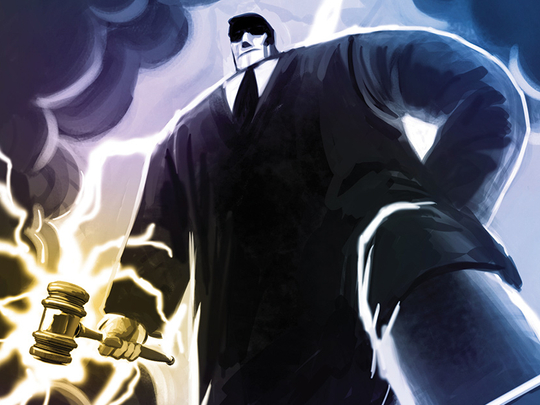
Why the fuss over the nomination of Neil Gorsuch for the United States Supreme Court to fill the opening created last year by the death of Justice Antonin Scalia? Why is a whole society being shaken to its core, and in certain quarters at its core, by that nomination?
If you’re asking these questions, clearly you do not live in the US and are thus unaware of the pivotal role that institution plays — and has played since 1789 — in defining how Americans live their lives.
When on July 1, 2006, for example, Justice Sandra Day O’Connor, a critical swing vote on a host of important issues, announced her retirement (after 24 years on the bench), the story became headline news in virtually all national and many provincial newspapers around America. The New York Times, by far the most influential daily in the US, led with three front-page articles and continued with four jump pages inside. And it was not just because Justice O’Connor had been a sensible and pragmatic jurist who abjured doctrinal absolutes in her opinions, but because, as the Times editorialised, “This is one time when it is not an overstatement to say that the choice of her successor could have an effect on the nation for generations to come.”
When the Grey Lady, America’s “newspaper of record”, resorts to such breathless prose, we know there’s a measure of gravity involved here.
Almost every issue of significance in American society eventually arrives at the Supreme Court, the final forum for appeal, where for well over 200 years that august body has issued rulings on race relations and pregnant women, on the rights of those accused of crimes (Miranda, 1966), the rights of newspaper publishers, on executive privilege, on voter rights and racial bias, on flag burning and affirmative action, and on disputes between the press and the White House ( The Pentagon Papers, 1971) and between the White House and Congress (The Nixon White House tapes, 1974).
Name it, and the Supreme Court, which adjudicates less than 200 of the 5,000 cases filed, will cherry-pick and offer its rulings. Wait, the Supreme Court cherry-picking? Well, at first blush, the term seems frivolous, but a closer look shows there’s method to the madness.
In this regard, consider Tinker vs Demoines: The case of Mary Beth Tinker, a 13-year old who was suspended from school in 1965 for wearing a black arm-band in class to protest the war in Vietnam, where school officials claimed that her action “upset the smooth and efficient functioning” of her Algebra class. Well, Mary Beth sued the school — all the way to the Supreme Court.
Mary Beth’s “symbolic speech”, expressed by her arm-band, “may start an argument or cause a disturbance”, Justice Abe Fortas wrote for the majority at the time, but “our constitution says we must take this risk” and, moreover, “schools cannot be enclaves of totalitarianism”.
America’s Founding Fathers had framed the constitution as a flexible document, whose basic principles will endure but whose interpretation will evolve as America evolves. Justice William Brennan, a liberal (Note to conservatives: The constitution, along with the Bill of Rights, is a liberal document) wrote in 1986: “The genius of the constitution rests not in any static meaning it may have had in a world that is dead and gone, but in the adaptability of its great principles to cope with current problems and current needs”.
And this is where my objection to the nomination of Neil Gorsuch for the Supreme Court kicks in. The man is known — and forget for a moment his conservative absolutes — to be a “textualist” who supports the idea of interpreting the constitution according to its literal text, much in the manner that fundamentalists who interpret the metaphoric imagery in holy books in a literal sense. Surely, America cannot regress back to the days of the Monkey Trial in 1925, can it?
Meanwhile, the US Supreme Court, whose deliberative process — internal negotiations, debates, compromises — is hidden from public view, soldiers on, issuing rulings that continue to change the face of America.
All well and good. But, may it please the court, who is watching over the watchdogs? Who is watching over these interpreters of the constitution, who wield so much power over the evolution of society’s social values, cultural norms and political system?
“A court which is final and unreviewable needs more careful scrutiny than any other”, wrote Warren E. Burger in 1968, nine months before being named chief justice of the US. “Unreviewable power is the most likely to self-indulge itself and the least likely to engage in dispassionate self-analysis. In a country like America, no public institution, or the people who operate it, can be above public debate”.
Food for thought, wouldn’t you say?
Fawaz Turki is a journalist, lecturer and author based in Washington. He is the author of The Disinherited: Journal of a Palestinian Exile.








